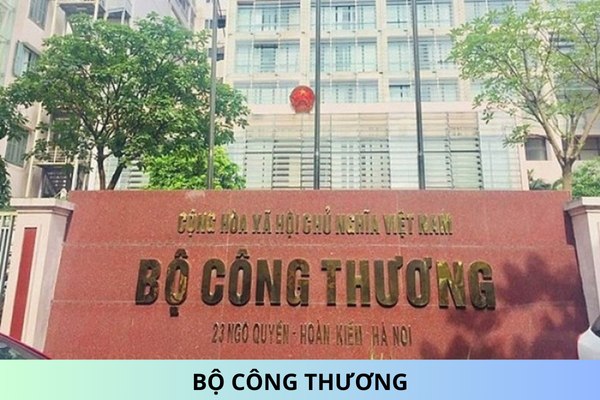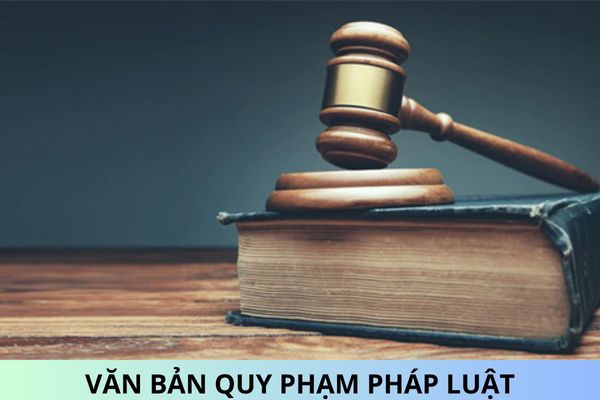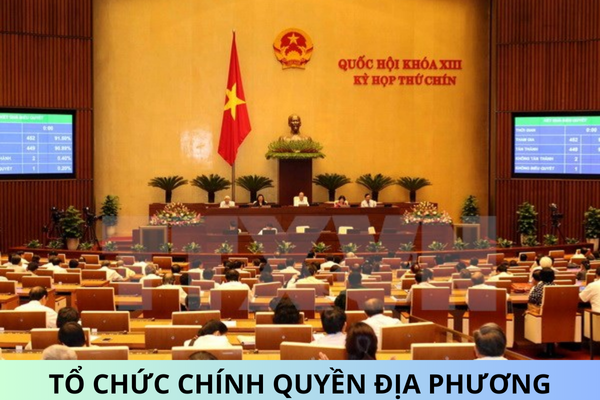If Party members borrow money from other people and fail to repay, will they be expelled from the Party in Vietnam?
If Party members borrow money from other people and fail to repay, will they be expelled from the Party in Vietnam? If Party members borrow money from others and fail to repay, will they be liable for criminal prosecution in Vietnam? What are principles of disciplining Party members in Vietnam?
Hi, I have a problem that needs to be answered. Mr. M borrowed money from me, but he never paid it back, he used the excuse that it was difficult to do business, so he couldn't pay it. Mr. M is a Party member, can I ask if he was expelled from the Party when he borrowed money and failed to repay? Is there a criminal prosecution?
I look forward to the reply from you, thank you.
If Party members borrow money from other people and fail to repay, will they be expelled from the Party in Vietnam?
In Article 1 of Regulation 69-QD/TW of 2022, scope of regulation, subjects of application is as follows:
1. This Regulation prescribes the content of violations and forms of discipline for party organizations and party members that commit violations to the extent that they must be disciplined.
2. This provision applies to party organizations (including organizations whose operating term has expired, been dissolved, changed due to transfer, separation, or merger) and Party members (including members who are declared missing, members who have died but committed particularly serious violations).
3. In case a party organization or member violates the contents not mentioned in this Regulation, it shall base themselves on the Party's Charter and regulations, the State's laws, the Party's charter and regulations of the Fatherland Front, socio-political organizations to handle discipline in accordance with this Regulation.
Thus, the act of borrowing money from others and then not paying it is not in any Party's Regulations or Charters in Vietnam. Therefore, the fact that Mr. M is a Party member but borrows money from a friend and does not repay it is not within the scope of Party discipline. In this case Mr. M will not be expelled from the Party for borrowing money from you without paying it back.
If Party members borrow money from others and fail to repay, will they be liable for criminal prosecution in Vietnam?
According to Article 175 of the 2015 Penal Code as amended by Clause 35, Article 1 of the 2017 Penal Code Amendment Law, abuse of trust to appropriate property is as follows:
1. A person who commits any of the following acts to obtain another person property which is assessed at from VND 4,000,000 to under VND 50,000,000, or under VND 4,000,000 while having incurred an administrative penalty for property appropriation or while having an unspent conviction for this offence or any of the crimes specified in Article 168, 169, 170, 171, 172, 173, 174 and 290 hereof, or the property obtained is the primary means of livelihood of the victim or the victim’s family shall face a penalty of up to 03 years' community sentence or 06 - 36 months' imprisonment:
a) Taking a loan, borrowing, leasing property of another person or receiving property of another person under a contract, then uses deception to appropriate it or refuses to repay the loan or return the property when the repayment or return of property is due despite he/she is capable of doing so;
b) Taking a loan, borrowing, leasing property of another person or receiving property of another person under a contract and then uses it for illegal purposes which result in the offender's inability to repay the loan or return the property.
2. This offence committed in any of the following circumstances carries a penalty of 02 - 07 years' imprisonment:
a) The offence is committed by an organized group;
b) The offence is committed in a professional manner;
c) The property illegally obtained is assessed at from VND 50,000,000 to under VND 200,000,000;
d) The offence involves abuse of the offender's position or power or committed in the name of an agency or organization;
dd) The offender employs deceitful methods to commit the offence;
e) The offence has a negative impact on social security, order or safety;
g) Dangerous recidivism.
3. If the property illegally obtained is assessed at from VND 200,000,000 to under VND 500,000,000, the offender shall face a penalty of 05 - 12 years' imprisonment.
4. If the property illegally obtained is assessed at from ≥ VND 500,000,000, the offender shall face a penalty of 12 - 20 years' imprisonment.
5. The offender might also be liable to a fine of from VND 10,000,000 to VND 100,000,000 or prohibited from holding certain positions or doing certain jobs for 01 - 05 years or have part or all of his/her property confiscated.
Therefore, anyone who has act of borrowing money from others but uses deception to appropriate it or refuses to repay the loan will be liable for criminal prosecution in Vietnam.
Mr. M is a Party member who borrows money from you and does not pay due to financial difficulties, he will not be liable for criminal prosecution because he did not intentionally use deception to appropriate it or refuse to repay the loan.
What are principles of disciplining Party members in Vietnam?
Pursuant to Article 2 of Regulation 69-QD/TW of 2022, principles of disciplinary action are as follows:
1. All party organizations and party members are equal before the Party's discipline. Party organizations and party members that violate the guidelines and regulations of the Party and the State's laws must consider and apply fair, accurate and timely discipline.
2. Disciplinary enforcement must comply with principles, processes, procedures and competence according to the Party's regulations.
3. When considering discipline, it must be based on the contents, motives, nature, extent, consequences, causes of violations, specific circumstances, aggravating or mitigating circumstances, and consciousness, attitude of self-criticism, acceptance of criticism and results of correction and remedy of defects, violations and consequences caused.
4. A violation can only be disciplined once by a form of discipline. When considering disciplinary action at the same time, if there are two or more violations, each violation shall be considered and concluded and decided collectively by the highest form of discipline; do not separate each violation to enforce different forms of discipline and discipline multiple times.
5. After 12 months from the date of publication of the disciplinary decision or the decision on settlement of disciplinary complaints (except for the disciplinary decision on expulsion for party members or disciplinary decision on dissolution of the party organization), if the party organization or party members do not complain, do not re-offend or have no new violations that warrant disciplinary action, the current disciplinary decision shall cease to be effective.
6. If a party organization or party member is unfairly disciplined or wrongly disciplined, the party organization that has issued a disciplinary decision must cancel or change the disciplinary decision accordingly; if the party organization fails to do so, the superior party organization has the authority to decide, and at the same time considers the responsibility of the party organization that has issued the decision to disciplin Settling according to rules.
7. If a disciplined party organization has transferred, split up, merged or terminated its operation, the announcement of the disciplinary decision shall be made in the party organization that has received the transfer, split or merger or organize a party directly superior to that party organization.
8. Discipline of the party organization must clearly consider the responsibility of the organization, and at the same time consider the responsibility of each individual involved in order to discipline party members who violate, especially the responsibility of the head.
Party members in a disciplined party organization must take responsibility for the content of the violation and the form of discipline of that party organization and must record it in the party member's resume; Party members who are not personally disciplined will still be considered by the competent party organization and perform cadre work according to regulations. Party members who disagree with or are not directly related to the party organization's violations must also clearly state it in the party member's resume.
9. Party members who violate the law must be strictly handled according to the provisions of law; Party members who violate the law to the extent that they have to be examined for penal liability, are wanted, or are sentenced by a court to a penalty of community sentence or higher, shall be expelled from the Party; if the punishment is lighter than community sentence, then depending on the content, nature, degree of consequences, the cause of the violation and aggravating or mitigating circumstances, party discipline shall be commensurate. If there is a loss of finance and property of the Party, the State, organizations and individuals, responsibility and compensation must be considered.
10. Party discipline does not replace administrative discipline, corporate discipline and other forms of sanctions of the law. If a Party member is disciplined for the party, the party management committee must promptly direct or request a competent state agency or socio-political organization within 30 days from the date of announcement on Party discipline, administrative and mass discipline (if any) according to regulations of state agencies and mass organizations.
When state agencies, the Fatherland Front, socio-political organizations and law enforcement agencies enforce discipline, prosecute the accused or examine them for penal liability against officials and public employees, officials, members, union members and employees who are party members must immediately notify in writing to the party organization managing such party member of the death. Within 30 days from the date of receipt of the notice, the party organization managing its members must decide to enforce Party discipline.
11. In the same case where many party members commit violations, each party member must be disciplined for their violations.
12. Party members who, after changing jobs, resigning or retiring, discover that there have been violations in their old agencies or units that require disciplinary action, consider disciplinary actions in accordance with the provisions of this Decree.
13. Failing to mobilize, rotate, appoint, confer or promote military ranks; confer, award and recognize titles of the Party and State to Party members who are being considered and disciplined by the Party organization.
14. In case of not disciplined, no or exempt from discipline:
a) Party member is a woman who is pregnant, on maternity leave, is raising a child under 12 months old, or a party member is a man (in case his wife dies or because of other objective or force majeure reasons). If you are raising a child under 12 months of age, you will not be considered for discipline.
b) Party members who are seriously ill and are being treated as inpatients at the hospital will not be disciplined. Only when their health is stable (discharged from the hospital) will they be disciplined.
c) If a violating Party member has died , the party organization shall consider and draw conclusions but not decide on disciplinary action, unless there is a particularly serious violation.
d) If a Party member is declared missing, if a violation is detected, he/she must still consider and conclude but have not yet been disciplined.
dd) Party members implement the proposal on innovation and creativity according to Conclusion No. 14-KL/TW, dated September 22, 2021 of the Politburo, approved by the competent authority, but damage occured, the competent agency shall clearly identify objective and subjective causes, and make an objective and comprehensive assessment; if they have implemented the policy, are motivated in the morning, for the common good, they will be disciplined or relieved of their responsibility.
e) Violations are caused by complying with wrong guidelines, decisions or orders of organizations or superiors or by coercion but proactively and promptly reporting in writing to competent organizations or agencies. If the competent authority knows its opinions and proposals before implementing them, they shall be exempt from discipline.
The above are the principles for disciplining Party members in Vietnam.
Best regards!











